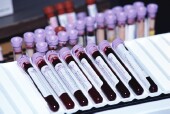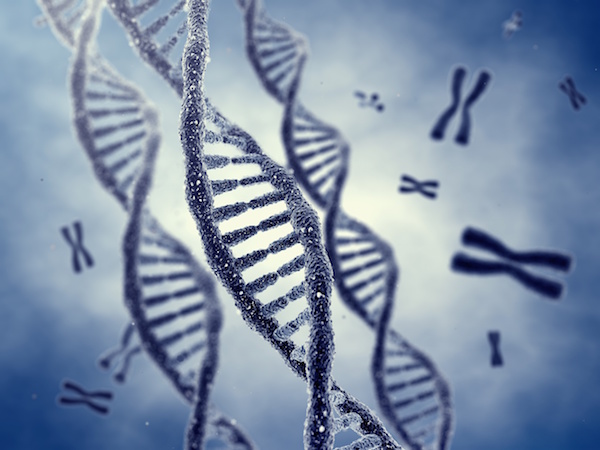
TUESDAY, Jan. 22 (HealthDay News) — A simple blood test might help predict a pancreatic cancer patient’s chances of benefiting from chemotherapy, a small study suggests.
Researchers found that they were able to put together a genetic “profile” of patients’ pancreatic tumor cells that helped predict whether a given chemotherapy regimen would slow their cancer progression. And it only took a simple blood draw that captured tumor cells floating in the patients’ bloodstream.
The test is not yet available in the real world. And the findings, to be reported this week at the Gastrointestinal Cancers Symposium in San Francisco, are considered preliminary.
But if further research pans out, experts say the test might help doctors better tailor chemotherapy to individual patients, based on the genetic makeup of their tumors.
“We’re moving toward a world where we want to be able to personalize patients’ cancer treatment,” said senior researcher Dr. Kenneth Yu, an assistant professor at Memorial Sloan-Kettering Cancer Center in New York City.
The current findings are “a first step” in realizing that goal, Yu said.
Right now, the outlook for people with pancreatic cancer is grim: only about 5 percent of patients are still alive five years after diagnosis. That’s because the disease is rarely caught early, and the cancer has usually spread beyond the pancreas when it’s diagnosed.
But in just the past few years, new chemotherapy “cocktails” have helped to control the progression of the cancer and extend people’s lives. The difficulty is that one patient may benefit from a particular chemo regimen, but another might not, Yu explained.
So, he and his colleagues are studying a new test that analyzes the “gene expression profile” of tumor cells in the patient’s bloodstream. The hope is that specific sets of genetic changes in those tumor cells can help doctors predict which chemo regimen is best for a particular patient.
The team’s preliminary findings come from 46 patients with inoperable pancreatic cancer who were starting any of a dozen chemo regimens, as recommended by their doctors. Yu’s team tested blood samples taken from the patients before they started chemo, and at the point that their cancer started to progress again. (The test results were not used to guide patients’ chemotherapy choices.)
Overall, the researchers found, patients generally fared better if they happened to be on a chemo regimen that the blood test predicted would be effective.
They typically went about 4.4 months before the cancer began to progress, versus 2.7 months for patients on chemo regimens that the blood tests predicted would be ineffective.
The study is ongoing, and the advantage in the former group has grown, said Yu. But there are still lots of questions. For one, Yu said, there needs to be a study where the blood test is actually used to guide patients’ treatment.
One expert cautioned that the research is still at an early stage.
“This is preliminary, and the test is not ready for clinical application,” said Dr. Neal Meropol, chief of hematology and oncology at Case Western Reserve University School of Medicine in Cleveland.
But the results are also promising, Meropol added.
“Studies like this are paving the way for allowing us to select therapies for individual patients,” Meropol said.
The fact that the new test relies on a simple blood sample is key, especially when it comes to pancreatic cancer, Meropol noted, because the pancreas is deep within the body so it’s hard to get a tumor biopsy sample.
The hope is that the blood test could be used not only before patients start chemo, but during treatment as well — to try to spot signs that a patient is developing resistance to the drug regimen and may need to switch to another.
“We know that tumors evolve over time, to try to escape treatments that were initially effective,” Meropol said.
The study was funded, in part, by CellPath Therapeutics Inc., the Baltimore-based company that is developing the blood test.
In other news from the same meeting, Japanese researchers found that a new chemo drug may extend the lives of certain patients with pancreatic cancer that can be treated with surgery. Of patients given the drug — called S-1 — after surgery, 70 percent were still alive two years later. That compared with 53 percent of patients who were given an older, standard drug called gemcitabine.
Because pancreatic cancer is usually found late, only 20 percent to 30 percent of patients are candidates for surgery. And S-1 appears to work best for Asian patients; earlier studies have found that white patients tend to suffer more severe side effects.
S-1 is currently approved in Japan and several other Asian countries, and in much of Europe. It is not approved in the United States, but is being studied here as a treatment for stomach cancer.
More information
Learn more about pancreatic cancer from the American Cancer Society.

